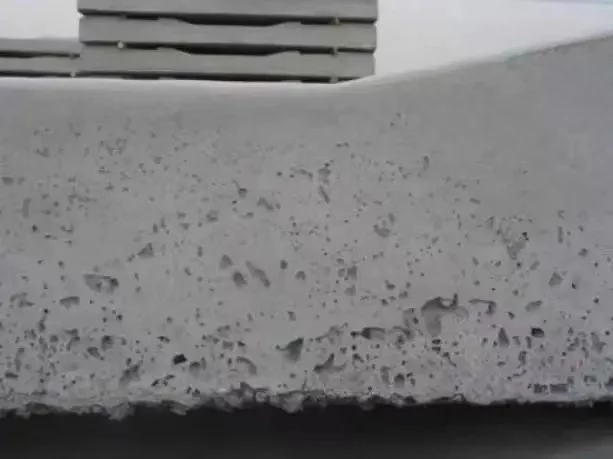What is air detraining agent?
Air-detraining agents are chemical compounds designed to reduce the presence of air in concrete mixes. They are extensively used in the production of high-density concrete, particularly in situations where radiation is present and high-strength concrete is required. These applications include nuclear power plants and hospital radiation rooms, as well as high-rise buildings, parking garages, and heavy-duty industrial floors.
What causes excessive air content in concrete?
Active ingredient content
The presence of active ingredients in cement during the hydration process can generate foam.
Grinding aids
Excessive air bubbles are often observed when grinding aids are used in cement production. The high alkali content and fine particle size of cement can also contribute to increased air content.
Improper material grading
During construction, improper grading of materials can result in insufficient fine aggregates to fill the voids between coarse aggregates, leading to the formation of free spaces and generating bubbles.

Excessive water
The reaction between water and cement requires a specific water-to-cement ratio. Excessive water can result in a higher proportion of free water, increasing the likelihood of bubble formation.
Mixing time
Uneven or excessive mixing can cause an increase in the number of bubbles during the concrete mixing process.
Impurities in water
Water containing organic substances and other impurities tends to form foam in cement.
Environmental and material temperature
Both high and low temperatures of the environment and materials can contribute to foam formation.
Water flow rate
Excessive water flow rate during construction can also lead to foam formation.
Equipment pressure
High pressure in cement mortar construction equipment can contribute to foam formation.
What is the use of air-detraining admixture?
Improving the workability of concrete
During construction, the flowability and plasticity of mortar are crucial factors. Excessive air bubbles can hinder the flowability and make construction difficult. Defoaming agents/air-detraining agents can effectively reduce the presence of bubbles in the mortar, making it more uniform and refined. This improves its plasticity and flowability, resulting in smoother construction.
Enhancing the crack resistance of concrete
During the drying and hardening process of concrete, shrinkage often occurs, leading to the formation of cracks. These cracks not only affect the strength and aesthetics of the mortar but also impact the lifespan of the structure. The active ingredients in defoaming agents/air-detraining agents can combine with the hydration products in concrete, forming stronger gels. These gels fill the micropores and fine cracks in the concrete, effectively preventing crack formation and enhancing the crack resistance of the mortar.
Time and labor-saving
In previous construction processes, a significant amount of machinery and materials such as mixers and vibrating tables were used to eliminate bubbles. This approach was time-consuming, labor-intensive, and generated pollution. However, defoaming agents/air-detraining agents can achieve deaeration without the need for mechanical vibration, reducing environmental pollution.

Improving the stability and durability of concrete
The presence of bubbles in mortar increases its porosity and reduces its density. By using defoaming agents/air-detraining agents, the quantity and size of bubbles can be effectively reduced. This disrupts the stability of the bubbles, enhancing the density of the mortar. It prevents the accumulation and separation of bubbles, thereby improving the stability and consistency of concrete. Additionally, defoaming agents can also improve the mortar’s resistance to water permeability, reduce water penetration, prevent cracking, and extend the lifespan of the structure by enhancing its durability and resistance to environmental influences.
In conclusion, defoaming agents/air-detraining agents play a significant role in the concrete industry. They improve the workability and crack resistance of concrete, shorten construction time, and enhance stability and durability. In modern construction practices, defoaming agents have become indispensable materials, providing robust support for the quality and performance of concrete.
Partnering up with a global leading material manufacturer that supplies diversified phosphate esters chemicals.
